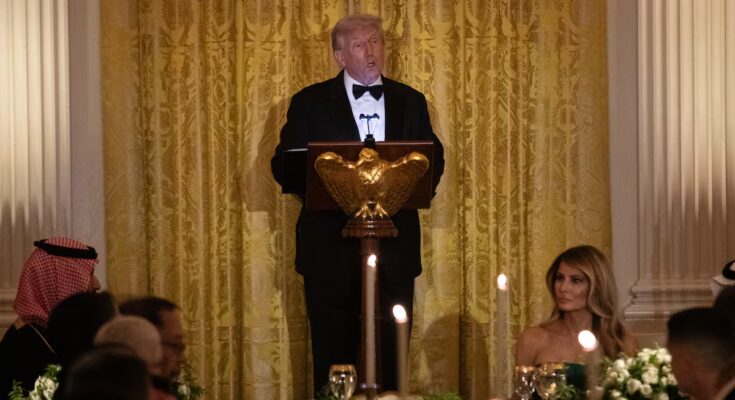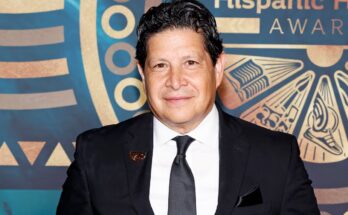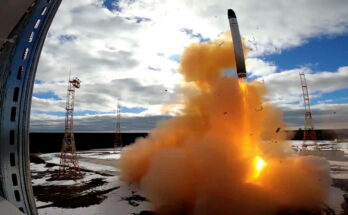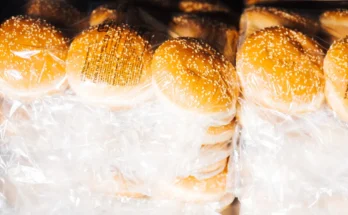US pressure on Venezuela does not stop. While the fleet he maintains in Caribbean waters carries out military maneuvers with firearms in Trinidad and Tobago, after the arrival in the area of the aircraft carrier Gerald Ford, Donald Trump has given his approval to a plan of covert CIA actions in Venezuelan territory that could pave the way for a broader military campaign, according to the New York Times. At the same time, his administration has reopened a negotiating channel with Venezuela that had been closed, as the US president underlined by indicating on Sunday that his government “could negotiate” with Caracas.
According to the Times, these talks, which were open for a while before briefly closing last month, had even led to an offer from Venezuelan President Nicolás Maduro to leave power within a couple of years.
It is not clear, the newspaper specifies, which exact types of actions Trump has authorized nor when they might be carried out. The president has not yet given authorization to deploy troops there, which could mean that the famous second phase of the military campaign against drugs – and the pressure on Maduro – which he has spoken about on several occasions, could consist of acts of sabotage, or some type of psychological, IT or information operation.
The newspaper specifies that Trump has not yet made a firm decision on the path to follow in Venezuela. Nor has he clarified what the exact objective of his military campaign, now dubbed “Operation Southern Spear,” is beyond the fight against drug trafficking. In that operation, US forces sank at least 21 suspected drug boats, in extrajudicial attacks that killed at least 83 people. The US administration assures, without presenting evidence in public, that these ships transport drugs and are linked to the cartels. It also argues that drug trafficking has reached such serious levels that a military response is needed to eliminate “narcoterrorism”.
Presidential advisers presented him with a series of options during multiple meetings held at the White House, at least two of which last week, immediately after the arrival of the Ford, the world’s largest and most modern aircraft carrier, in Latin American waters. Military strategists have laid out a number of cartel infrastructures that could be attacked, and the Pentagon has drawn up attack plans against military units close to Maduro, according to the newspaper.
These types of plans would be preceded, according to the Times, by some type of covert action by the US secret services. Trump had already authorized the field actions of these agencies in Venezuela last month.
But at the same time, the Administration is conducting negotiations with the Chavista regime, suggesting that the confrontation may still have a diplomatic solution. Trump himself had declared on Sunday, returning to Washington after spending the weekend at his private residence in Florida, at Mar-a-Lago: “we could have some conversations with Maduro, and we’ll see how it turns out.”
Maduro, according to this information, has hinted at a desire to offer US companies access to Venezuelan oil. While in public Trump accuses the Chavista leader of being a drug trafficking leader – his government accuses him of leading the Suns cartel – in private he speaks enthusiastically about the Caribbean country’s oil wealth.
This Sunday, the State Department announced that starting on the 24th it will include the Suns cartel in its list of foreign terrorist organizations, a step that opens a legal avenue, according to the White House, to take military action without having to ask permission from Congress. The legislature is the body responsible for declaring war, as provided by the United States Constitution.
The next day, Trump maintained the ambiguity with which he has expressed himself in recent weeks regarding Venezuela, in which he combines threats of new military actions with more conciliatory statements. At an Oval Office event, he did not rule out sending troops into the field or resolving the crisis through dialogue. “I’m not ruling anything out,” the Republican said. “We simply have to solve Venezuela.”



